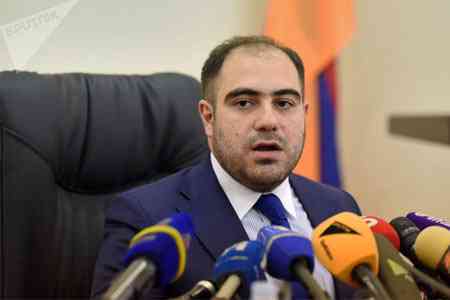


ArmInfo.The project to create a single gas market in the Eurasian Economic Union has been postponed until 2027, Armenia's Deputy Minister of Territorial Administration and Infrastructure Hakob Vardanyan stated on March 11 at a meeting of the RA National Assembly Commission on Regional and Eurasian Integration.
According to him, it was initially planned that a fully-fledged single oil and gas market should be operational by 2025, but due to the emergence of some problems, these deadlines have been shifted. In particular, as the deputy minister emphasized, there is no common approach on the issue of the single gas market between the association participants. There is a lack of consensus on five groups of issues, which is why the decision was made to postpone the creation of a single market. The main stumbling block is the principle of gas price formation. Armenia, Belarus and Kyrgyzstan support the use of a single price, which Russia and Kazakhstan oppose. Thus, the question of how the price of "blue fuel" will be formed from the gas field to the place of its supply remains problematic. There are discounts on gas for consumers in the Russian Federation and Kazakhstan, and the price for them cannot be the same as for consumers in Armenia, Belarus and Kyrgyzstan.
Another problem is the current agreements on gas supplies to the EAEU, which Moscow and Astana consider necessary to revise in order to bring them into line with prices on the single gas market. Meanwhile, other participants in the association, including Yerevan, are in favor of continuing to implement the provisions of the current agreements (for Armenia this period is set until 2043). Vardanyan recalled that Armenia currently receives Russian gas at a price of $165 per 1 thousand cubic meters, and intends to maintain it in the near future.
As for the single electricity market, as Vardanyan noted, Yerevan votes in a consensus mode on many issues related to its application. In particular, Armenia cannot use regime supplies of electricity from the borders, since it does not have direct access to the electricity markets of the EAEU countries. However, the country votes for its use, given the possibility of supply through the electricity systems of Armenia and Georgia. When solving problems between Moscow and Tbilisi, such an opportunity will still appear. At present, it is purely theoretical.